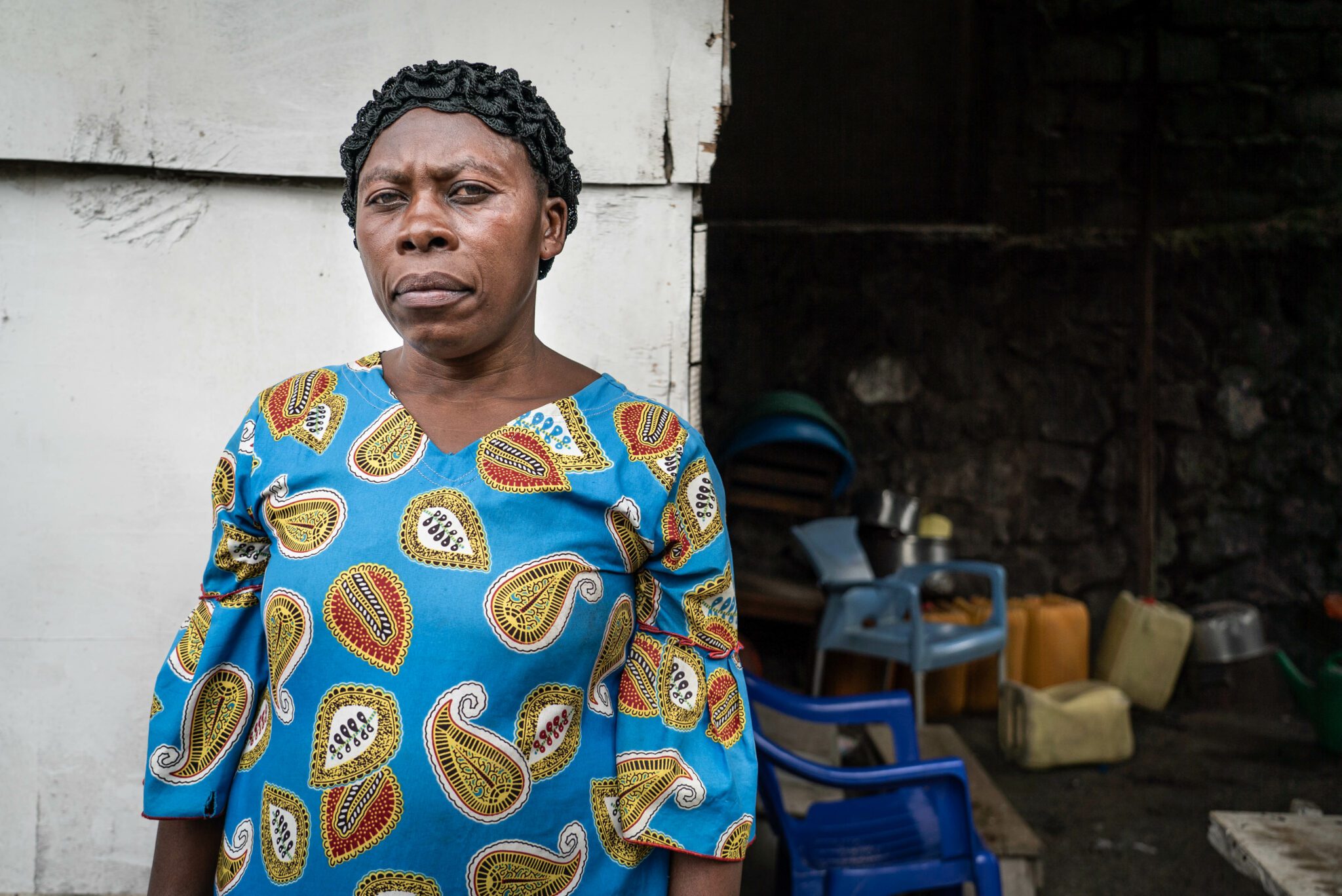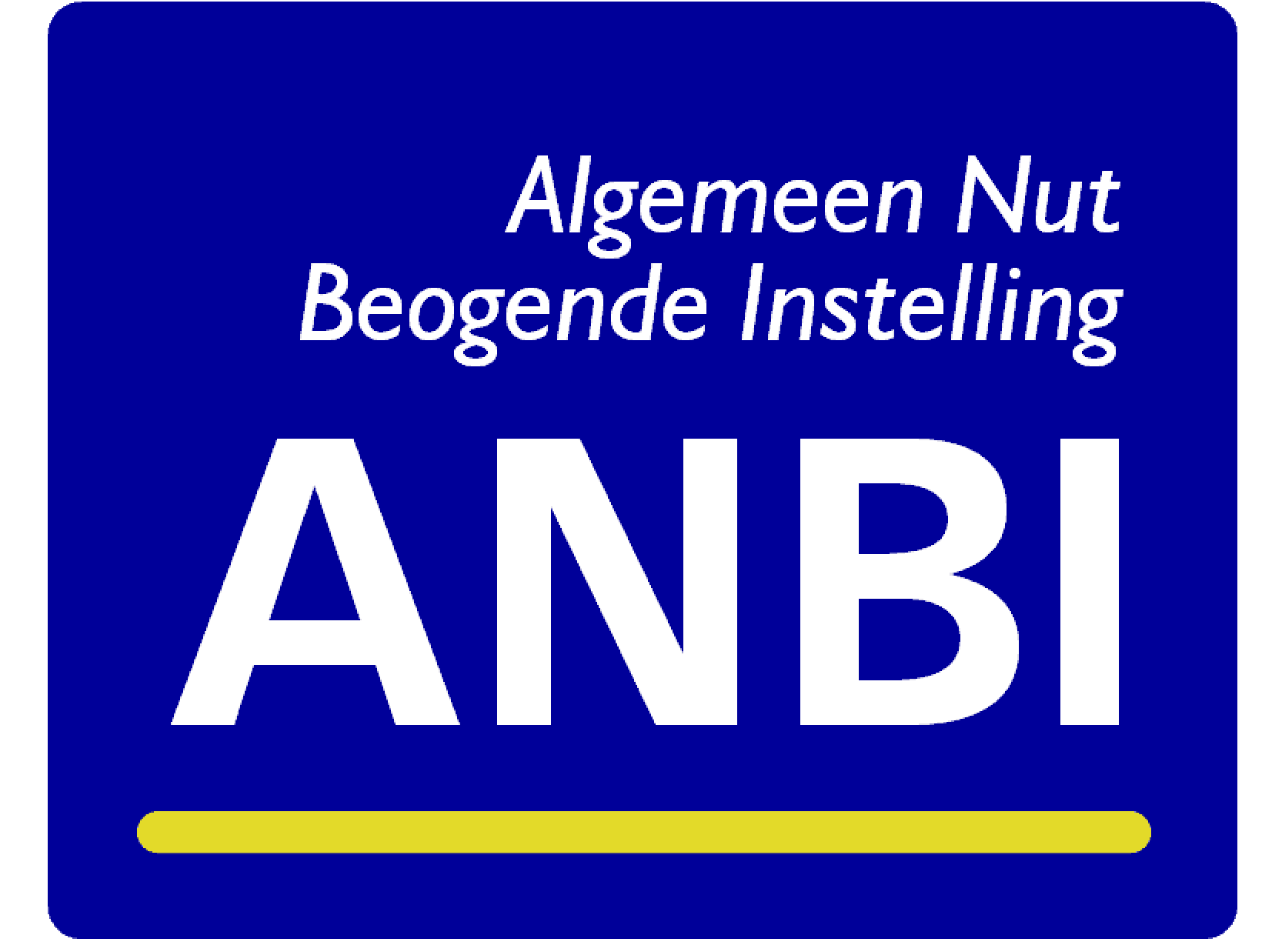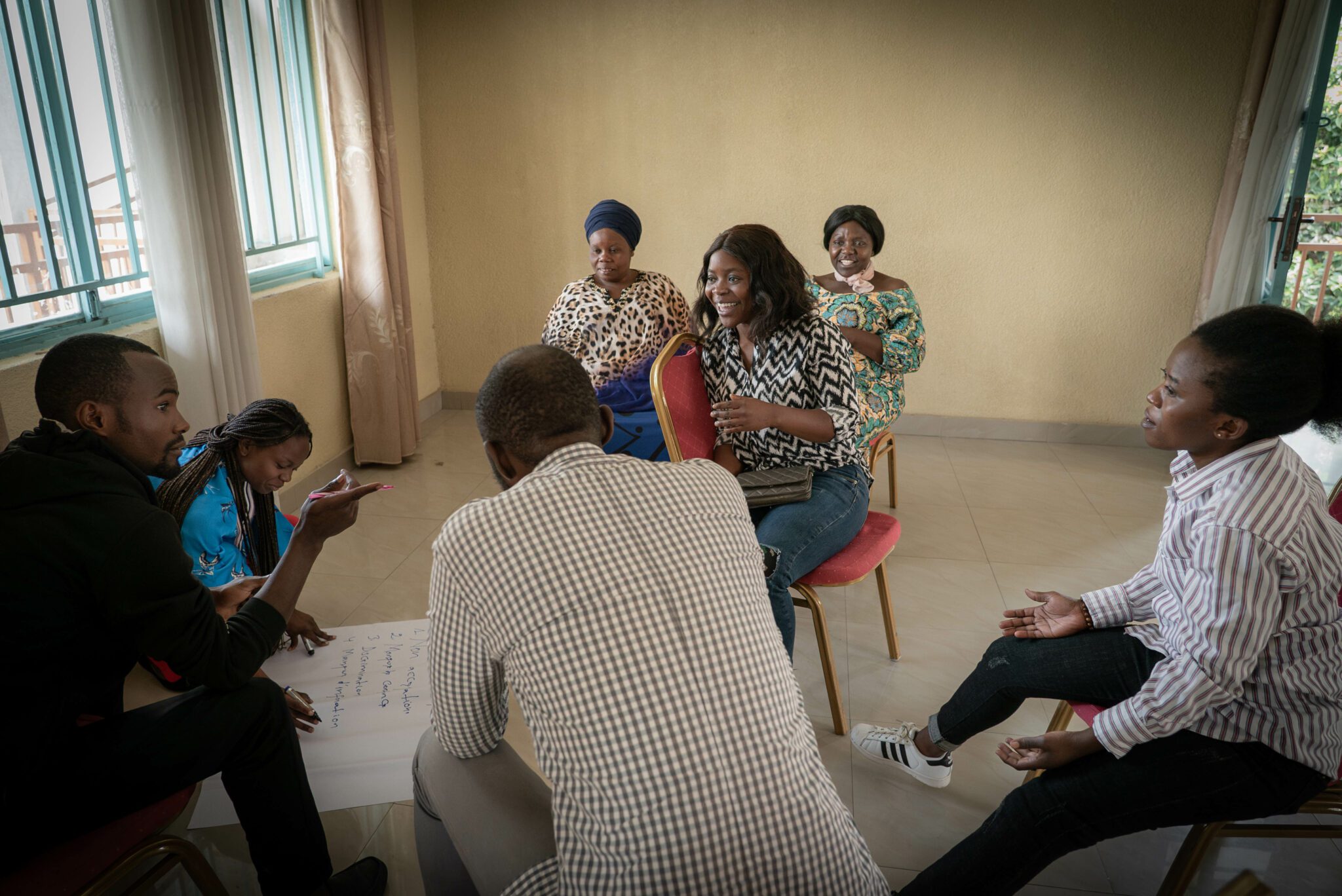

Violence against women
Burundi and the Democratic Republic of Congo are characterized by a long history of conflict. Many ethnic groups are pushed into conflict with each other, often including violence. Women are especially vulnerable in this context. Regularly, they are victims of sexual violence by rebel groups and domestic violence is prominent in daily lives.This hinders women’s ability to play a positive role in peacebuilding.
The programme Mwanamke, Amani na Usalama 2.0 (MAnU; ‘Women, Peace and Security 2.0’) of Mensen met een Missie is committed to structurally protect women and girls and to contribute to the transformation of unfavourable gender norms, to ensure women’s meaningful participation in conflict transformation and peacebuilding in the Democratic Republic of Congo (DRC) and Burundi.
Our strategy
- Raising awareness to encourage stakeholders to reflect on their actions, their lives and the norms of societies in which they live.
- Strengthening the capacity building at the community and provincial level to contribute to a peaceful society in which women’s rights are respected.
- Lobby & advocacy at local, provincial, national and regional levels for the participation of women and girls in decision-making processes and protection against violence.
What do we do to address the problem
The MAnU 2.0 consortium, composed of Mensen met een Missie (lead), CARE Nederland and Synergy of Women for Peace and Reconciliation of the peoples of the Great Lakes (SPR), as well as local partner organizations in Burundi and DRC, are collaboratively implementing a program of five years (2021-2025). This program aims to ensure that women and girls participate, in a meaningful way, in the mediation, prevention and resolution of conflicts and in the protection and construction of peace.
This is all implemented in collaboration with the Dutch Ministry of Foreign Affairs within the framework of the Dutch National Action Plan (NAP) IV of resolution 1325 . NAP 1325 is a partnership between several ministries, knowledge institutions and Dutch civil society organisations. It contains agreements on how the Netherlands is implementing UN Security Council resolution 1325 on women, peace and security.
Our target groups are: women and girls (leaders); men, boys, religious leaders and community leaders (informal power holders who can help advance change) and local, provincial and national authorities (formal power holders). By raising awareness; capacity building and lobby & advocacy among these three key groups the MANU2.0 programme contributes to meaningful participation of women and girls in decision-making and peacebuilding; transformation of harmful norms; and enhanced protection.
Examples of activities that lead to a transformation of norms, to create better conditions for an effective participation of women and to counter SGBV are:
- Organize capacity-building workshops for informal leaders in order to provide them with knowledge of social norm theory so that they acquire attitudes more favourable to the participation of women in decision-making bodies;
- Form clubs of young people to develop standards and practices that fight gender discrimination and sexual and gender-based violence;
- Train religious leaders on communication techniques to change discriminatory social norms against women. Through this, the religious leaders can help spread messages to promote human rights for women and gender equality.
Want to know more?
Would you like to find out more about this programme? Contact us via the button below.



